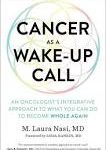by Rona | Jul 28, 2022 | KPFA, Nurse Rona, Podcasts
Bullying and abuse can be seen in all corners of society from children’s playgrounds, to baseball practice, and dance class. We also see adult bullying in the classroom, at summer camp, at home, on the job, and in the political arena. The psychological trauma of being bullied produces damage to the developing brain, and the child who is doing the bullying also suffers. The bullied brain can heal, and children can be taught to not fall victim to bullying. Join us to learn more.
Listen now to About Health on KPFA.org— 94.1FM (8/1/22)
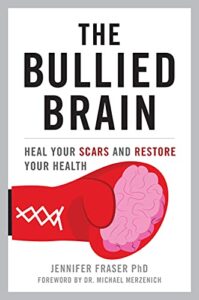
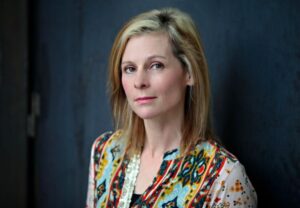 My guest is best-selling author and award-winning teacher, Jennifer Fraser. With a PhD in Comparative Literature from the University of Toronto, Jennifer is trained to take different discourses—literature, anthropology, psychology, pedagogy, neuroscience, philosophy—and put them into dialogue. Her wide-ranging knowledge, lived experience, dedication to learning and teaching, produce new insights into age-old problems. Not content to merely discuss, Jennifer’s goal is to set in motion significant change. Her latest book is The Bullied Brain: Heal Your Scars and Restore Your Health. Jennifer’s first book was on the rite of passage from being a reader to a writer of culture. Her second book was on suppressing grief in childhood, only to have it resurface as either numbness or aggression. Her third book was about the way children learn bullying from influential adults. She is interested in designing a world with our brain in mind. Go to https://www.bulliedbrain.com/ to learn more.
My guest is best-selling author and award-winning teacher, Jennifer Fraser. With a PhD in Comparative Literature from the University of Toronto, Jennifer is trained to take different discourses—literature, anthropology, psychology, pedagogy, neuroscience, philosophy—and put them into dialogue. Her wide-ranging knowledge, lived experience, dedication to learning and teaching, produce new insights into age-old problems. Not content to merely discuss, Jennifer’s goal is to set in motion significant change. Her latest book is The Bullied Brain: Heal Your Scars and Restore Your Health. Jennifer’s first book was on the rite of passage from being a reader to a writer of culture. Her second book was on suppressing grief in childhood, only to have it resurface as either numbness or aggression. Her third book was about the way children learn bullying from influential adults. She is interested in designing a world with our brain in mind. Go to https://www.bulliedbrain.com/ to learn more.
by Rona | Jun 12, 2020 | KPFA, Nurse Rona, Podcasts, Radio Shows
It’s vital that we all reflect on how we talk with children about racism and understand how our spoken and unspoken words and actions shape them. Are you raising your kids to be anti-racist and compassionate people? How do we help them see that Black Lives Matter? And do they see you stand up for antiracist policies?
As parents, grandparents, teachers, aunts and uncles, we have a big responsibility. Our kids are always watching us and listening to how we understand the world. Let’s help each other, for our kids sake.
Allison Briscoe-Smith, Ph.D—6/15/20 on KPFA.org—94.1FM
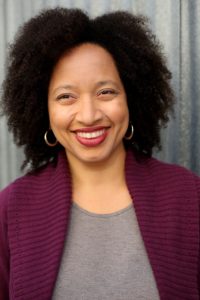
by Rona | Dec 28, 2018 | Announcements, Appearances, Is That Me Yelling?, KPFA, Nurse Rona, Podcasts, Radio Shows
Listen to the show on 12/31/18 with Dr. Amy Day, on KPFA 94.1FM
As the year comes to an end we can all reflect on our level of stress, fatigue, mood, and overall health. Do you make your good health a priority, or do you find it gets put on the back burner because of all the other things you have to do? Join us to discover some simple ways to replenish your energy and reduce your stress.
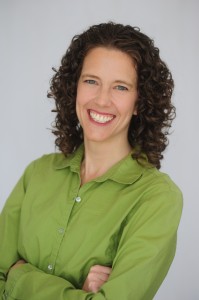
Dr. Amy Day is a doctor of Naturopathic Medicine. She is the founder of The Women’s Vitality Center in Berkeley, CA and specializes in helping busy professional women with stress, fatigue, and hormonal issues. After helping 1,000s of women in her private practice, Dr. Amy now also offers online group programs and virtual health coaching to support women outside of the Bay Area. She currently serves on the Board of Directors for the Endometriosis Association and is a past board member of the California Naturopathic Doctors Association.While in medical school, struggles with her own women’s health issues fueled Dr. Amy’s passion to work with and empower other women. She now provides experienced and compassionate care to help get to the bottom of complex hormone issues including adrenal/thyroid health, perimenopause/menopause, PMS, PCOS and endometriosis. She uses an integrated approach combining diet, exercise, lifestyle counseling, stress management, nutritional supplements, botanical medicines and bioidentical hormones as she guides women on the journey to optimal wellness.
Learn more at www.DrAmyDay.com. You can download a free copy of her e-book—
4 Steps to Replenish Your Energy.
by Rona | Nov 13, 2018 | Announcements, Appearances, KPFA, Nurse Rona, Podcasts, Radio Shows
Listen to today’s show (11/19/18) on KPFA, 94.1FM
Dr. M. Laura Nasi joins me for an in-depth conversation about an integrative approach to what you can do to become whole again when you have a diagnosis of cancer. Dr. Nasi presents a new way of looking at how we view and treat cancer. Integrative medicine encourages chemo and radiation when necessary, while also focusing on a patient’s internal balance to help halt the disease.
Guest:
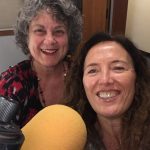
M. Laura Nasi, MD, is an integrative oncologist in private practice in Buenos Aires, Argentina. She specialized in Internal Medicine at Temple University and in Clinical Oncology at the Memorial Sloan Kettering Cancer Center in NY, was Clinical Research Coordinator for the International Breast Cancer Study Group in Bern, and Research Director for a Swiss pharmaceutical company. She lives with her partner alongside a lake on the outskirts of Buenos Aires, where she grows her own vegetables.
by Rona | Jan 25, 2017 | Announcements, Appearances, KPFA, Nurse Rona, Podcasts, Radio Shows

You Can LISTEN NOW to the About Health show (January 30, 2017)
We discussed the factors of hoarding: excessive acquiring, difficulty discarding, living in cluttered spaces, and having distress or impairment. Compulsive hoarding is a common, serious, and treatable behavior, that can have significant negative effects on people who struggle with it and their families.
Guests:
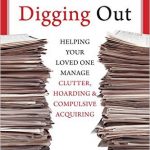 Michael A. Tompkins, PhD, ABPP, is a licensed psychologist and board certified in Behavioral and Cognitive Psychology. He is co-director of the San Francisco Bay Area Center for Cognitive Therapy and Assistant Clinical Professor at the University of California, Berkeley. He is the author or co-author of numerous articles and chapters on cognitive-behavior therapy and related topics, as well as seven books, including Digging Out: Helping Your Loved One Manage Cutter, Hoarding, and Compulsive Acquiring (with Tamara L. Hartl). His most recent book on the topic of hoarding is Clinician’s Guide to Severe Hoarding: A Harm Reduction Approach. The Mental Health Association of San Francisco awarded him the 2013 Lifetime Achievement Award for his contribution to the understanding of hoarding and cluttering.
Michael A. Tompkins, PhD, ABPP, is a licensed psychologist and board certified in Behavioral and Cognitive Psychology. He is co-director of the San Francisco Bay Area Center for Cognitive Therapy and Assistant Clinical Professor at the University of California, Berkeley. He is the author or co-author of numerous articles and chapters on cognitive-behavior therapy and related topics, as well as seven books, including Digging Out: Helping Your Loved One Manage Cutter, Hoarding, and Compulsive Acquiring (with Tamara L. Hartl). His most recent book on the topic of hoarding is Clinician’s Guide to Severe Hoarding: A Harm Reduction Approach. The Mental Health Association of San Francisco awarded him the 2013 Lifetime Achievement Award for his contribution to the understanding of hoarding and cluttering.
David Bain is a Peer Facilitator with the Patient Centered Outcomes Research Institute Team at the Mental Health Association of San Francisco. He has a background in technology, education, and psychology. He leads groups teaching Cognitive Behavioral Therapy techniques to individuals dealing with hoarding behaviors as a part of a joint study with University of California San Francisco. He speaks at conferences, develops and presents courses, and presents information to community groups. He has a Masters degree in Education.





